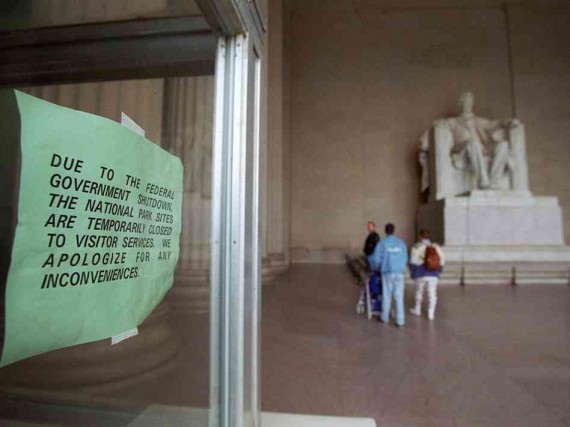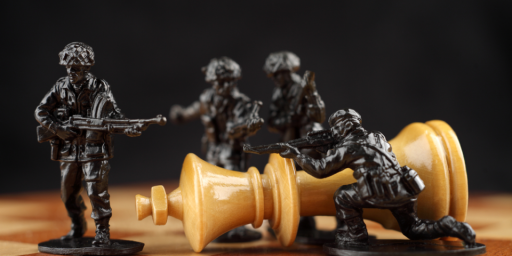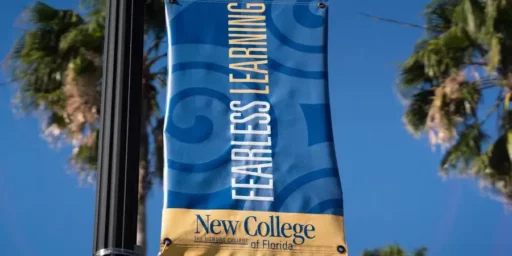Essential Government Personnel, Professional Military Education Edition
One inmate's view of the asylum.
Earlier this week, I wrote that, “I would almost certainly not be impacted by a shutdown. Military schools have always been considered an essential service in the past and will surely be considered that again. It would be beyond idiotic to have hundreds of field grade officers sitting around Quantico getting paid for going to school while furloughing their civilian professors.”
In the absence of guidance, I defaulted to the operating assumption that logic would prevail. This morning, I got guidance: It will not.
So, if the government shuts down next week, here’s how the breakdown will go at the Command and Staff College:
- Essential: The Command and Staff College itself.
- Essential: Military students at the Command and Staff College.
- Unessential: Civilian students (i.e, those from the CIA and other government agencies) at the Command and Staff College.
- Essential: Uniformed military faculty at the Command and Staff College.
- Unessential: Civilian faculty at the Command and Staff College.
- Essential: The director and dean of students at the Command and Staff College, both of whom are uniformed military.
- Unessential: The dean of academics and deputy director of administration at the Command and Staff College, both of whom are civilians (but retired lieutenant colonels).
Obviously, the only governing principle here is that government employees who happen to wear a uniform are “essential” whereas those who do not are “unessential,” even if they’re doing the same job.
On the one hand, I support the distinction. If we’re going to deem military personnel essential—and, clearly, we should—we shouldn’t penalize those who happen to be assigned as students or instructors in our institutions of professional military education. Most if not all of them have been deployed downrange during the last dozen years of high operations tempo, so it would be outrageous to deem them “non-essential” because of where they happen to be sitting when the music is turned off. On the other hand, to the extent that some government employees are more essential than others, it ought logically to be determined on the basis of function not form.
It’s particularly galling in the case of our civilian students. The taxpayer has already invested substantial money transporting them and housing them at the College. But, if the government shuts down and the situation does not resolve itself soon, they’ll soon be impossibly behind as they’re legally forbidden from doing the work. (They were told they may continue to do the readings, although my not-a-lawyer opinion is that this is not a given.) To add insult to injury, they’re essentially stuck in place while they wait for Congress to get its act together.
In my own case, it’s mostly annoying. Presuming the shutdown doesn’t last for weeks on end, the loss of pay will be a nuisance rather than devastating. That, obviously, will not be the case for everyone. In particular, the lower paid support staff could well find themselves unable to pay the mortgage if this goes on for long–particularly since they’ve already absorbed six furlough days this year.
In both my own case and I presume that of my academic colleagues, the prohibition against working while furloughed will be observed mostly in the breach. It’s not as if I’m going to cease reading material in my field. Indeed, freed from the need to commute to work and fulfill obligations at the office, I’ll likely read and almost certainly write more than I would otherwise.
Thankfully, the teaching structure at the Command and Staff College is such that the short-term impact on the uniformed military students will be relatively minor. Civilian academics teach completely different courses than our uniformed military counterparts (essentially, we teach history and political science and they teach leadership and operational planning) so the leadership will simply reshuffle the sequence of the curriculum. Presuming the civilian PhDs are back in the fold by the end of October, we’ll be able to salvage the semester.
Still, this is no way to run a railroad.







James, I agree, however, apart from the 2012 presidential election, there appear to be no negative electoral consequences for Republicans in their strategy to attempt to nullify the results of the 2012 election.
They are, since the 2010 mid-term elections, the party of anti-governance. The 2012 elections changed nothing – Republicans maintained their sizable majority in the House and they might have gained ground in the Senate had they not screwed up in North Dakota, Missouri and Indiana. In fact, in 2014, they are actually poised to gain ground in the Senate, and the House is now set-up to stay Republican (unless white people start dying off in droves due to complications arising from obesity.)
The country now appears to want this dysfunction. If the attitude and views of my extended family is indicative of conservative middle class voters this is not going to change any time soon. They see this as an opportunity to force REAL cutbacks in government social programs, and if it’s necessary to shut it down, so be it. America’s bond rating? To them it is an abstraction, or they think it’s crying wolf, or they think it’s already been downgraded due to out of control liberal spending.
America is going to be on this road to nowhere for years to come.
Republicans have long had a problem recognizing that any cut takes managerial activity, and thus has an overhead cost. The shutdown has both direct effects and also additional costs as everyone (including the military) stops what they are doing to manage the shutdown itself. [See also ‘sequestration’]
A simple rule like that at least has the benefit of low managerial cost. You don’t need a weekend retreat (for which you will later be criticized) to work everything out better, in detail.
Yep, folks have been briefed the shutdown procedures. Basically, come in Tuesday and be told to go home. Active duty will be around to supervise the contractors. Just like in the 90s. Good times.
If only there were a way workers could coordinate amongst themselves so this sort of stupid thing is less likely to recur.
Meantime..in the real world…outside of the GOP nonsense…
The President of the US and the President of Iran spoke directly with each other for the first time since 1979.
You are now returned to regular programming on the All Ted, All the Time network.
@al-Ameda:
Then they will whine that that mean old Obama is cutting back on stuff that THEY NEED BY GOD!!! just like they do with the sequestration. Funny how fraud and abuse is always in those other programs.
Why are you complaining here? Complain to those who created the situation: Congressional Republicans. Put some of your education and (supposed?) intelligence to work.
Guy…you insist on voting for the people doing this to you.
Elections have consequences.
But don’t worry…Ted Cruz is going to make everything OK again.
@William Wilgus: Oh, I do.
Surely, you are aware that there is no way to furlough uniformed members. They don’t earn pay by the hour no matter how it is sometimes administered. They are on 24/7. The governing principle is what can legally be done. Would you prefer they discharge the military members, which itself would incur costs?
The civilian students have another problem. At some point, a decision will have to be made about continuing to incur the expense of their travel, i.e., is it essential. So they may be returned to their homes and then have to travel back.
Also, while the cash flow is a problem for employees, essential and non-essential, due to delayed payment of payroll, in the past, Congress has made furloughed employees whole after the fact.
They have to “prevent” furloughed employees from working, otherwise the employee can make a claim for the pay. Non-exempt employees must be prevented. I’m not sure how firm an exempt employee’s, which you most likely are, claim would be since it might work like overtime which must be pre-approved. The trick, should you choose to work, don’t create a “paper” trail such as using the government email or dating writing for which you expect government compensation during the shutdown.